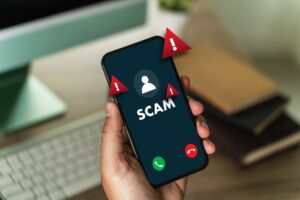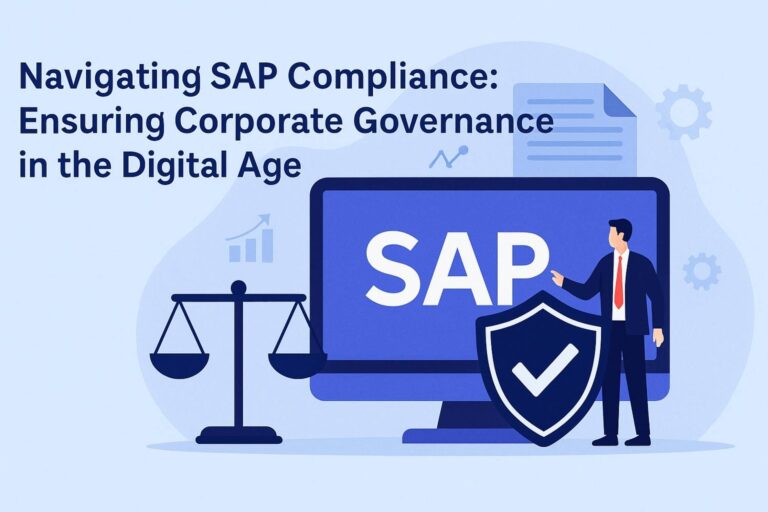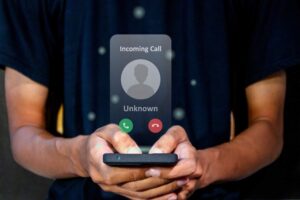I’ll be honest—I’m no stranger to weird phone calls. One time, I answered a number I didn’t recognize, only to hear a robotic voice claiming I had “won a government grant.” All I had to do was hand over my bank account information. Yeah, right. That was my first real lesson in how sneaky scammers can be.
So when I started digging into 1-800-745-7354, the patterns felt familiar. The number has been flagged multiple times online, and the experiences people share are almost carbon copies of my own spam call stories. If you’ve seen this number pop up on your phone and wondered whether to answer, let’s break it down together.
What Is 1-800-745-7354?
1-800-745-7354 is a toll-free number that shows up on caller IDs across the U.S. According to call-reporting platforms like CallApp, RoboKiller, and YouMail, the number is tied to suspicious or unwanted calls.
Reports suggest the callers often claim to be following up on a letter you “should have received.” Sometimes they present themselves as part of a company called Data Search or a similar debt collection agency. But here’s the catch—most people never got a letter, and the messages are vague at best.
In other words, the number carries a reputation for being spam, scam, or shady debt collection rather than legitimate customer service.
How Do Calls From 1-800-745-7354 Sound?

Many people describe the same script:
- A robotic or live voice says, “Hello, this is Status/DataSearch calling for [your name]. We are calling to follow up on a letter you should have received. Please return this call…”
- The call feels impersonal and avoids giving details like debt amount, original creditor, or account information.
- In some cases, it’s an outright robocall that cuts off or repeats itself.
This generic style is a red flag. Real companies (especially regulated ones like banks or insurance providers) don’t hide key details when contacting you.
Table: Quick Facts About 1-800-745-7354
| Detail | What We Know |
| Number type | Toll-free (800) |
| Caller ID reports | Spam / Scam flagged |
| Common caller claim | “Following up on a letter you should have received” |
| Possible company name mentioned | DataSearch (debt collection agency) |
| User experience | Vague messages, repeated calls, no proof of legitimacy |
| Risk level | High (potential scam or harassment) |
| Best action | Do not answer, block, and report |
Why Is 1-800-745-7354 Considered Suspicious?

There are a few reasons people flag this number:
- Inconsistent claims – Callers mention letters that were never sent.
- Lack of transparency – They don’t provide details about the debt or issue.
- Aggressive frequency – Some users report daily or multiple calls.
- Debt collection link – If it’s tied to a company like Data Search, reports suggest questionable practices and legal complaints.
Even if the number does belong to a debt collector, legitimate agencies must follow strict rules under the Fair Debt Collection Practices Act (FDCPA). Vague, robotic calls often violate those standards.
What Should You Do If 1-800-745-7354 Calls You?
Here’s the step-by-step approach I recommend:
1. Don’t Answer Unknown Calls
If the number isn’t saved in your contacts and looks suspicious, let it go to voicemail. Scammers count on catching you off guard.
2. Listen Carefully (If You Do Answer)
Take notes on the script: company name, reason for call, and what they’re asking for. Never provide personal or financial details over the phone.
3. Verify the Claim in Writing
If they claim to be a debt collector, you have the legal right to request written proof (a debt validation letter). If they can’t provide it, you don’t owe them anything.
4. Block the Number
Use your phone’s built-in blocking feature or a third-party app like RoboKiller or Truecaller. This stops repeat harassment.
5. Report the Number
- FTC Complaint Assistant: reportfraud.ftc.gov
- Consumer Financial Protection Bureau (CFPB): consumerfinance.gov
- Better Business Bureau (BBB): If a company name is provided, file a complaint.
How Do You Protect Yourself From Spam Calls Like This?

Dealing with calls like 1-800-745-7354 is frustrating, but a few habits can save you stress:
- Enable spam filters: Most carriers (Verizon, AT&T, T-Mobile) now offer free spam detection.
- Don’t call back immediately: If you’re unsure, research the number online before returning the call.
- Educate family members: Elderly relatives are frequent scam targets, so share this info with them.
- Stay skeptical: If something feels off, it probably is.
Also Read: 7155021398
FAQs About 1-800-745-7354
1. Is 1-800-745-7354 a legitimate business number?
There’s no official confirmation that this number belongs to a verified company. Reports suggest it may be linked to a debt collection agency, but the vague nature of the calls makes legitimacy questionable.
2. Could 1-800-745-7354 actually be from my bank or insurance?
Unlikely. Real financial institutions clearly identify themselves, provide account details, and follow regulated communication standards. If you’re unsure, call your bank or insurance company directly using the number on your statement—not one from a voicemail.
3. Can debt collectors legally call from 1-800-745-7354?
Debt collectors can call you, but they must follow FDCPA guidelines: clear identification, validation letters, and no harassment. If 1-800-745-7354 fails to provide proof, you’re not obligated to engage.
4. Should I block 1-800-745-7354?
Yes, blocking is a smart move if you’re getting repeat unwanted calls. Pair that with reporting to the FTC or CFPB for extra protection.
Final Thoughts: Don’t Let 1-800-745-7354 Rattle You
Here’s my bottom line: 1-800-745-7354 is widely reported as suspicious, spammy, and possibly tied to shady debt collection practices. Even if the calls have your name right, that doesn’t mean they’re legitimate.
The safest move is simple—don’t answer, block, and report. Protect your personal information like it’s gold, because once it’s out there, it’s tough to pull back.
I treat unknown numbers the way I treat random “free samples” in my inbox—tempting to click, but almost never worth it. When in doubt, step back, verify, and trust your gut.











